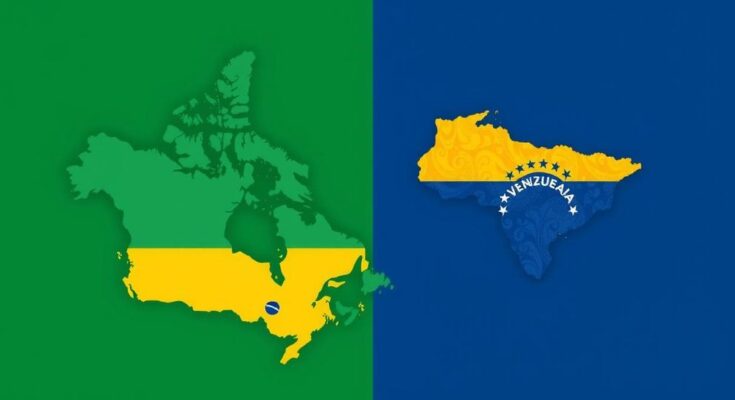South America is grappling with economic crises highlighted by Bolivia’s declining natural gas production and Venezuela’s collapse due to oil dependency. Both countries demonstrate the perils of relying on natural resources, political instability, and a lack of diversification. Important differences exist in their governmental responses, with Bolivia seeking investment amidst internal conflict, while Venezuela employs authoritarian measures without addressing core economic issues. The lessons from these crises emphasize the need for systemic reforms in the region.
South America is currently experiencing significant economic turmoil, significantly illuminated by the cases of Bolivia and Venezuela. Both nations have showcased the vulnerabilities inherent in economies heavily dependent on natural resources. Bolivia, once a promising example of resource-driven development, now grapples with diminished natural gas production due to years of underinvestment. The country has seen its gas exports drop nearly 40% since their peak, prompting a crisis exacerbated by political instability under President Luis Arce, marked by increasing dissent from within his party and rising inflation.
Conversely, Venezuela’s drastic economic collapse serves as a cautionary tale, rooted in its over-dependence on oil. Despite possessing the largest oil reserves globally, the nation’s economy has been devastated by corruption, mismanagement, and external sanctions, particularly following the oil price drop in 2014. Hyperinflation and shortages of essential goods have led to unprecedented emigration levels, massively straining the region.
Both crises underscore the necessity for diversification away from resource dependency, which has ill-prepared these countries for volatility in global markets. Political instability further complicates the situation; in Bolivia, infighting within the ruling party has hindered governance, while Venezuela’s authoritarian regime has exacerbated its economic malaise.
Despite facing similar challenges, the two nations have adopted strikingly different responses. Bolivia has initiated measures to attract foreign investment and diversify its economy, though political strife has severely hindered progress. Venezuela, on the other hand, has resorted to authoritarian tactics to retain power, yet these do not resolve the underlying economic issues affecting the country.
Ultimately, the crises in both Bolivia and Venezuela impart crucial lessons for wider South America regarding economic and political reforms. As the region looks ahead, it must heed the examples set forth by these nations to avoid being further entrenched in instability and economic fragility.
The economic situations in Bolivia and Venezuela illustrate the broader challenges facing South America as a region rich in resources yet beset by political and economic strife. The heavy reliance on natural resources such as natural gas and oil has rendered these economies particularly vulnerable to external market fluctuations. This dependency, compounded by political mismanagement and corruption, has led to significant declines in economic performance, demonstrated by the recent crises in both countries. Understanding these dynamics is essential for forming effective policy responses across the region.
In conclusion, the economic crises observed in Bolivia and Venezuela serve as vital warnings for South America regarding the risks associated with resource dependency and political instability. As these countries struggle with adverse economic conditions due to mismanagement and lack of diversification, it is imperative for South America to pursue comprehensive reforms aimed at stabilizing and enriching their economies. The choices made today will be pivotal in shaping a resilient future for the continent.
Original Source: www.firstpost.com




